Öz
Bu çalışma, Türkiye ve Hindistan'ın Bangladeş'teki Yumuşak Güç stratejilerine odaklanmakta ve Türkiye'nin tarihsel-dini yönünün, Hindistan'ın Bangladeş'te karşılayamayacağı ekstra bir çekicilik sunduğunu ileri sürmektedir. Eskiden Doğu-Bengal olarak bilinen Bangladeşli Müslümanlar, 1920'lerin başlarında Hilafet sisteminin yaşatılması için 'Hilafet Hareketini' örgütlerken, Hindistan Bangladeş'in Pakistan'a karşı yürüttüğü kurtuluş savaşına doğrudan destek verdi. Coğrafi ve kültürel nedenler, Hindistan'ın Bangladeş'in bağımsızlığına yardımını desteklerken, derin dini bağlar Bengalli Müslümanların Osmanlı Hilafet'ine destek vermesine neden oldu. Çalışma, Bangladeş'teki Türkiye ve Hindistan'ın mevcut Yumuşak Güç stratejilerini analiz etmek için bu faktörleri irdelemektedir.
This study focuses on Türkiye and India’s Soft Power strategies in Bangladesh and argues that Türkiye’s historical–religious aspect offers an extra appeal that India cannot afford in Bangladesh. Muslims of Bangladesh, formerly known as East Bengal, organized the ‘Caliphate Movement’ for the integrity of the Caliphate system in the early 1920s while India directly joined in Bangladesh’s liberation war against Pakistan. Geographical and cultural causes backed India's assistance in Bangladesh's liberation while a sharp religious cause backed Bengali Muslim’s support for the integrity of the Caliphate. The study relates these factors to analyze the current Soft Power strategies of Türkiye and India in Bangladesh.
Bangladesh is an important country in South Asia because of its geostrategic location, big and growing young population, and its quickly expanding economy. With land boundaries with India to the west, north, and east, Myanmar to the southeast, and the Bay of Bengal to the south, Bangladesh is one of the most populous nations in the world. When India was partitioned in 1947, the historical and linguistic province of Bengal was divided, with Bangladesh as part of independent Pakistan. Bangladesh is a relatively young state which gained independence from Pakistan in 1971. The bulk of the population of Bangladesh are Bengali Muslims.
India is also located in South Asia and is the most populous country in the world with a fast-growing economy. Although reluctant for historical reasons and was part of the Non-Alignment Movement during the Cold War, India recently began to assert itself in the International arena by using economic, political, and cultural powers. As a part of BRICS countries, India has become a major power in South Asia and has aspirations to play an even bigger role beyond its borders. Being inadequate in terms of hard powers such as economic, and military compared to the USA and neighboring rival China, India has been relying on more and more its soft powers, such as Bollywood and Yoga.
Türkiye, on the other hand, is located in between the Middle East and Europe and has been trying to be part of the West for 100 years, changed its trajectory during the last 20 years, and trying to be a power on its own. Being a part of G-20, Türkiye is a middle-income economy and middle political power in the area. Recently Türkiye has been opening up to other parts of the world, especially to the Muslim world with and alternative civilizational claims that Türkiye would help countries oppressed or colonized by the West. To achieve this aim, Türkiye has been using hard tools such as economic and military aid as well as soft powers, such as religious, cultural, and historical ties as well as Turkish serials. Therefore, Türkiye began to operate via the Turkish Cooperation and Coordination Agency (TİKA), Yunus Emre Institute, Turkish Red Crescent, Maarif Foundation, The Presidency of Turks Abroad and Related Communities (YTB) and Turkish Diyanet Foundation built mosques around the world, especially in Africa, Latin America, and South Asia. Bangladesh has been one of the target countries of the soft power strategies of Türkiye. Therefore, Türkiye has been competing with India in South Asia.
Both India and Türkiye have been using soft power strategies on Bangladesh. Almost surrounded by India and geographical, geostrategic, ethnic, linguistical, cultural, and historical reasons, the Bangladeshi government and people are closer to India. Both people of India and Bangladesh are ethnically and linguistically close to each other. India help Bangladesh during the independence war against Pakistan in 1971. However, the recent rise of Hindu nationalism in India under the Modi government and discriminatory policies against Muslims worries Bangladeshi Muslims. Although far away from Türkiye, Bangladeshi people have a good opinion of Turkish people. Bangladeshi Muslims helped Türkiye during the independence movement of Türkiye as an effort to save Caliphate. To conclude, although India has a clear advantage in terms of soft power over Bangladesh, Türkiye has been making a way with its soft power strategies.
Introduction
Bangladesh, because of its geostrategic location, bulk of population and rapidly growing economy, holds significance to both India and Türkiye. Legacy of the Hindu, Mughal and British colonial rule, co-existence of multi-religious population, ranges of historical-touristic sites, emerging economy, and democratic steadiness–locates India in category of states which seek great power status combining its hard and Soft Powers. Culturally, from language aspect, India’s Hindi is near to Bangla as the latter is an evolved form of ‘Sanskriti.’ It is easier for Bengali speaking people especially young generation of Bangladesh to understand Hindi even if many of them cannot speak Hindi properly. It is difficult to find one who did not watch Bollywood films. Indian TV serials, both in Bangla and Hindi language, are common features in daily life of Bangladeshi mass particularly women.
On the other hand, there are more/less 80 Turkish words used in Bangla. Türkiye’s ‘strategic depth’, ‘zero problems with neighbors’, and ‘Asia Anew policy initiatives’ adopted by the current Justice and Development Party (AKP)–relocated its influences towards areas where Caliphate’s imprints were enlarged. Though, Bangladesh, known as Bangla at the time, was not part of the Caliphate, many of Bangla stood against disintegration of the Turkish Caliphate and offered all means of support from their feeling of Muslim brotherhood. However, formation of the Republic of Türkiye in 1923 restricted the country to national security orientation and did not engage with the outer world noteworthily till the emergence of the ‘neo-Ottomanism’ concept during 1990s. In later days, during AKP’s rule, Turkish Red Crescent, Maarif Foundation, Yunus Emre, The Presidency of Turks Abroad and Related Communities (YTB) have been pursuing active roles for Türkiye’s soft powers in Bangladesh. We organized the article as follows: In the Literature review, we outlined the works on overall soft power of both India and Türkiye. We defined the concept of soft power how it’s used in International Relations in the theoretical perspectives. Later we analyzed both Türkiye’s and India’s soft power strategies and tools in Bangladesh respectively and compare their effectiveness.
Literature Review
The Brand Finance Global Soft Power Index 2022 examines several facets of 'Business & Trade, Governance, International Relations, Culture & Heritage, Media & Communication, Education & Science across 120 countries and ranked Türkiye and India respectively 22 and 29 (Global Soft Power Index, 2023). Khanna and Moorthy discussed how India might overcome its 'soft power' limits by adopting a 'smart power approach' to its external policy and bolstering its 'digital and public diplomacy infrastructure' (Khanna & Moorthy, 2017). Lahiri emphasized civilizational and historical legacy (Buddhism, yoga, Ayurveda, Sanskrit, etc.), democracy, Bollywood, economic help, and to a lesser degree Modi's 'personal' appeal are the four basic principles of Indian soft power in relation to 'India's foreign policy' goals (Lahiri, 2017). Singh writes that to date, India's avenues of 'soft power' tools has only just begun to take shape.' The new institutional solution ‘still needs more time' to mature and become more efficient. Increased funding, consistent focus from 'decision-makers', and better coordinated efforts are necessary for India to become a 'major soft power' (Singh, 2020). Wagner (2005) describes how India’s hard power turned into a soft power since 1990s (Wagner, 2005).
On the other hand, Anaz (2022) claims that Turkish soft power includes both direct state soft power, as demonstrated by its 'diplomatic outreach', as well as significant 'non-state outreach' initiatives carried out by Turkish players in the fields of culture, economy, and wellbeing, as well as 'Turkish media and TV popularity' along the entire globe while Asia holds the third position preceded by Balkan and Africa. Public diplomacy and soft power are inextricably intertwined with 'cultural diplomacy', and Türkiye has great prospective in this area (Anaz, 2022). Donelli demonstrates how Türkiye has exploited culture as a diplomatic tool (Donelli, 2019). Moreover, Kalın (2011) explained how Turkish soft power has been benefiting Turkish public diplomacy in the globe particularly in the Middle-east, Balkan and Caucasus (Kalın, 2011). Alpaydın argues that despite the fact that there has always been some 'soft power culture' in the Turkish Republic, it has grown during the AKP administration (Alpaydin, 2010). Moreover, Nazmul Islam focused on Türkiye's soft power in Bangladesh, India, and Pakistan's from political, economic, social, cultural, trade, business, commercial and diplomatic directions (Islam, 2020). However, this study endeavors to discern Türkiye and India’s distinguished soft power strategies and effectiveness in Bangladesh.
Theoretical perspective
Joseph Nye popularized the term "soft power" in the 1980s, which is based on the notion that non-economic and non-military power dynamics can coexist in global politics. The key components of soft power are trustworthiness and persuasiveness. According to Nye, “soft power is the ability to affect others to obtain the outcomes one wants through attraction rather than coercion or payment. A country's soft power rests on its resources of culture, values, and policies.” (Nye , 2008: 94). He further argues that if one is successful in persuading other people to 'want to do' what they desire, then they will not have to be forced to do something that the first person prefers not to do. The foundation of 'soft power' is the capacity to influence others' choices. He again argues that three factors essentially contribute to a nation's 'soft power': its culture in areas where it is appealing to others, its political principles when it upholds them both at domestically and overseas, and its foreign policy when they are regarded as morally and legally sound (Nye , 2008: 95).
Türkiye’s Soft Power in Bangladesh
Though Türkiye and Bangladesh's formal relation was established by Türkiye’s giving recognition to independent Bangladesh in 1974, a pre-independent relationship existed. Members of the medical delegation of Indian Muslims went to Balkan Wars to support the Ottoman Empire. Ismail Hossain Siraji, a Bengali poet, was the only member of this medical delegation who hailed from present-day Bangladesh. He sent news from the battlefield which were published in the newspapers. Later, during the Turkish War of Independence, Siraji played an important role in the Khilafat Committee of Bengal which was formed to save the integrity of the Khilafat. Another poet Kazi Nazrul Islam wrote the poem Ranveri to support the Turkish War of Independence. He also wrote the poem ‘Kamal Pasha’ while the Turkish Army fought courageously against the Greek Army. Besides, he wrote an article titled ‘Kamal’ in a biweekly named ‘Dhumketu’ to praise Kamal Pasha (Sarker et al., 2022: 56).
Since the Republic was established in 1923, protecting the integrity of the Türkiye became a top priority. Westernization was considered the best method of defense. However, for the time being, protecting Türkiye’s borders from any Soviet incursions from the north that became the top security priority after WWII ended. The neo-realist definition of security held that external threats posed the greatest danger, and that the only way to counter them was to beef up Turkish armed forces at home and to enlist NATO and American support in the fight against the USSR. Instead of having a distinct international or security identity during the Cold War, Türkiye was viewed as a logical 'extension of the NATO alliance' in the area (Oğuzlu, 2007: 81). So from the very beginning, Türkiye adopted security-oriented approach till AKP’s coming to power. AKP’s policy transformation from securitized to desecuritised approach and in later days combination of both securitized and non-securitized approaches reflected the government’s soft power agenda.
Türkiye made some progress in cleaning up its act, and the 'EU-related reforms' may provide answers to the country's ongoing political, economic, and security issues. This change has also been influenced by the way civilian-military ties have changed under the AKP government. AKP's new exterior policies emphasizes 'strategic depth' and 'zero problems' with neighbors. Ahmet Davutoglu, the ex-foreign and Prime Minister of Türkiye, developed the country's new methods for widening its appeal to Turkish people and friendly connections with all of its neighboring states through strengthening of 'political and economic' links with them (Davutoğlu, 2008: 78). However, Türkiye’s soft power instrument to Bangladesh was mainly the historical religious feeling of the Ottoman empire and economic transaction till Bangladesh’s expressing solidarity with the Turkish incumbent government after the failed military coup in 2016 and Türkiye’s expanding helping hand on the Rohingya issue at the end of 2017. Previously, an economic relation existed through the D-8 as Bangladesh is a founding member of the organization. Finally, Türkiye’s Asia Anew policy initiative opened Türkiye’s doors more to Bangladesh as the latter was declared as the key partner in Asia for the former’s Asia Anew policy.
Soft Power Actors of Türkiye
Turkish Red Crescent
Bangladesh is one of 137 countries where Turkish Red Crescent operates its humanitarian activities. Mustafa Osman Turan, Türkiye's ex-ambassador to Bangladesh, said, while distributing Eid gifts in Pandemic time, that, “during these difficult times, we extend our helping hand to our brothers and sisters in need in Bangladesh through the Turkish Red Crescent” and “Türkiye and Bangladesh are two sister countries. We share the same religion and values.” On the event of the Eid, Turan wished the inhabitants of Bangladesh a happy holiday and emphasized the strong ties that exists between the two nations (Kamruzzaman, 2021).
Turkish Diyanet Foundation
“The best of people are those who are most beneficial to people”– the prime moral of the Turkish Diyanet Foundation, that rooted to predecessor Turkish Muslims–is an ‘act’ of kindness and a contribution to mankind from Islamic culture that strives to serve all of humanity. It is concerned for every act that promotes social harmony and 'peace', works to advance religion and culture in society, and serves as a cornerstone for humanitarianism in Türkiye and on all 'seven continents' with the goal of establishing the rule of 'goodness' on the planet (About Us, 2023) Accordingly, the Turkish Diyanet Foundation provided aid for the persecuted Rohingya population in refugee camps in Cox's Bazar in the southern Bangladesh and initiated an awareness program to slow the escalation of the Covid pandemic (Riyaz ul Khaliq, 2020). Moreover, Oguzhan Adsiz, the Bangladesh coordinator for Türkiye’s Diyanet Foundation said that “for the 2021 Ramadan program we distributed 11,800 food packets for the Rohingya community. But we didn't forget the host community. We distributed 3,200 food packages for our Bangladeshi brothers and sisters.” (Kamruzzaman, 2021). Along with battle against COVID-19, the organization provided refugees with soap and 'hand sanitizer'. The 80,000 Rohingya as well as thousands of locals benefited from the packs. Turkish Diyanet Foundation also offers unique presents among Bangladeshis for several celebrations, such as the Ramadan, Eid al-Adha, and winter. Moreover, it distributed 5,000 copies of the holy Quran around the host community during the holy month of Ramadan. Additionally, the organization employs teenage Rohingya women in its tailoring facilities to provide Eid clothes for the Rohingya. To keep the oppressed people healthy and safe throughout the pandemic, the group manufactured 45,000 bottles of 'liquid soap' at its camp manufacturing unit and delivered them to the community (Kamruzzaman, 2021).
Turkish Government Scholarship and MoUs
As per The Presidency of Turks Abroad and Related Communities (YTB), the authority for offering Fulbright government scholarship for international students, data, 200 Bangladeshi students are now enrolled in higher education institutions in Türkiye, while 543 Bangladeshi has already graduated from Türkiye between 2012 and 2021 (Kamruzzaman, 2022). In 2021, the Turkish authority declared that they would provide one hundred scholarships to students of Bangladesh (Turkey to Offer 100 Scholarships for Bangladeshi Students Annually, 2021).
Moreover, in July 2022, Brac University in Dhaka, Bangladesh and Altinbas University in Istanbul, Türkiye, concluded a 'Memorandum of Understanding (MOU)' to launch 'student and faculty exchanges for study, research, and sharing of innovative teaching' practices (Brac University Enters Collaboration with Turkey’s Altinbas University, 2002). İstanbul University and University of Dhaka also signed a MoU for academic cooperation. Moreover, some Bangladeshi private universities have MoUs with Turkish public and private universities (Dhaka University Signs MOU with Istanbul University, 2023).
Turkish Cooperation and Coordination Agency (TIKA)
The Turkish Cooperation and Coordination Agency (TIKA), a Turkish government owned development agency, provided Ummulqura Fazil Imam Hatip School in Raipura, Narsingdi, Bangladesh, with essential support including student bags, school boards, teaching desks, 'student desks', 'podium tables' for 'conference rooms', desktop PCs, 'wooden single' and 'double student' seats, and 'televisions for smart classrooms' (TİKA Supports Education in Bangladesh - TİKA, 2021). Moreover, TIKA constructed a 'fully-equipped outpatient department' for the Dhaka Children's Hospital, the sole Children hospital in Bangladesh (TİKA Supports Child Health in Bangladesh, 2021). Ten medical and nursing studying Turkish students volunteered their time and travelled to Bangladesh as part of the 'Experience Sharing Program' 2022 (ESP), an initiative of the TIKA. Its ‘Give Me A Chance’ initiative in Bangladesh used football as a tool to empower underprivileged girls. The project's Girls' Football Tournament took place on December 29, 2022, in Moulvibazar, Bangladesh (TİKA Contributes to the Development of Girls, 2023). Moreover, in Dhaka, TIKA constructed a 'digital' production' facility at the Islamic University of Technology (IUT) (TİKA’s Digital Manufacturing, 2022). The organization donated 8 ventilators to the ICU of the TMSS Medical College Hospital in Bogura, Bangladesh, which is situated in the country's northern region (TİKA Provides Ventilators to Bangladesh, 2022). TIKA also provided 1,000 food packets containing essential foodstuffs in 2022 as part of its Ramadan initiatives in Babuganj and Gournadi, two towns of Barishal, Bangladesh (Ramadan Program from TİKA in Bangladesh, 2022). In addition, the Refugee Relief and Repatriation Commission of Bangladesh received a 30-seat shuttle bus from TIKA to be utilized for mobility to Rohingya camps (TİKA Provides a Shuttle Bus, 2021). Moreover, the Shaheed Suhrawardy Medical Faculty and Research Hospital in Dhaka, Bangladesh, is home to a regularly 'chemotherapy unit and an acute inpatient ward' with space for 66 patients, both of which were funded by a project begun by the TIKA (TİKA Continues Operations in Health Sector in Bangladesh, 2017).
Turkish TV Serials and Historical Attraction
Bangladeshis appear to have taken a special heed in Turkish TV series themed on the legends of history from the 'Ottoman and Seljuk' Rulers. Those who have been most inspired by the mega-series have shown a considerable amount of curiosity in Turkish culture and tradition. According to Zannatul Ferdous, a senior dubbing scriptwriter of a Bangladeshi private channel-Deepto TV, "Türkiye is a perfect example of a civilized culture which has gained advanced knowledge in all forms of arts such as crafts, painting, architecture, literature, music, film and media. I am mesmerized by their presentation of art.” (Historic Series Draw Bangladeshi Crowds, Culture, 2021).
Some most popular Turkish TV mega series in Bangladesh are "Kösem Sultan," "Vatanım Sensin," "Fatmagül,", "Diriliş Ertuğrul," "Kuruluş Osman," "Uyanış: Büyük Selçuklu," "Barbaroslar," and "Yunus Emre." Turkish ‘mega-serials and movies’ are now widely popular among millions of Bangladeshis, especially among the country's youthful population, who watch them on YouTube and Facebook. The words "Bey," "Eyvallah," "Hey Mashallah," "Abey," “Haydi Bismillah'' and numerous others alike have recently gained widespread popularity among Bangladeshis. One student at Dhaka University, the top Public University in Bangladesh, said that he loves Turkish mega TV series for both religious and humanistic reasons as many Turkish TV serials encourages protest repression. Even, welcoming one another with the 'right hand' over the heart, as is customary in Türkiye, gained widespread in Bangladesh as a means of maintaining courtesy and formal distance between people during the pandemic time. People in Bangladesh, who enjoy Turkish films and television series, are also likely to be well-versed in Turkish cuisine, particularly sweet treats like 'baklava', savory pastries like ‘lokum, börek, and boyoz– those are encouraging them to visit Türkiye’s historical places (Historic Series Draw Bangladeshi Crowds, 2021). Mustafa Osman Turan, ex-ambassador of Türkiye in Bangladesh, noted that the old city of Istanbul is a popular 'tourist' spot for people from Bangladesh, and mentioned that 'Turkish Airlines' has recently raised the frequency of its flights to the city to 14 times each week (Kamruzzaman, 2022). Furthermore, Bangladesh’s ex-ambassador to Ankara–Mosud Mannan said, since our shared past has bound us together, we hope to foster even more opportunities for personal interaction. Collaboration in the fields of culture and education, as well as increased exchange, would be beneficial to trade ties since businesses would be more familiar with the local culture and language. He claimed that although there is good trade between the two nations in a variety of sectors, including the defense industry, pharmaceuticals, and white goods, there is still room to grow the volume of trade between them (Aslan, 2021).
Turkish Food
The Mughals, Central Asian Turks, introduced rich foods like 'Kachhi biriyani, polao, korma, chicken roast, mutton rezala, moghlai parata, kebab, tehari, and borhani', which have overwhelmed Bangladeshi cuisine. Since it was established in 1608 as Jahangir Nagar, the capital of Mughal Bengal, Dhaka's cuisine has a strong Mughal influence. While cooking Kachhi biriyani, a tantalizing experience is created by infusing 'the layers of mutton, rice, and potatoes' with hot and delicious combinations of exotic 'spices' (Alam & Naser, 2020: 217). Moreover, Samosa (previously known as ‘Sambusah’) is largely eaten snack type food in Bangladesh, about which Ain-i-Akbari (The famous book of Mughal emperor Akbar) of Mughal emperor Babar described (The Story of the Samosa, 2019).
Currently, Turkish food are becoming popular very rapidly in Bangladesh. There were very few Turkish restaurants before Turkish mega serials' getting unprecedented popularity after 2016. Turkish kebab is being served among food lovers by Turkish restaurant in Dhaka. Moreover, Turkish olive oil, green and ripe olive, fig, lokum and Coffee are rapidly habituating Bangladeshi people.
Mughal Architecture
Lalbagh Fort, located near Dhaka along the Buriganga River, is a magnificent example of Mughal 'architecture' (Sharmin, 2019: 21). Moreover, Saat Gumbad Mosque in Dhaka, Bibi Maryam’s mosque and tomb in Narayanganj, Tomb of Pari Bibi, Pagla Bridge, Tongi Bridge, Mir Jumla’s gate, Shah Shuja’s Husaini Dalan, Shah Shuja’s Idgah, Shah Shuja’s Bara Katra, Idrakpur fort, Sonakanda fort, Hajiganj fort are noteworthy vestiges of Mughal architecture in Bangladesh (Khondker, 2012).
Erdogan’s Individual Popularity
The number of people downloading BiP, a messaging app launched from Türkiye in January 2021, from the Google Play Store in Bangladesh increased by 92 levels in just one day. Many people believe the announcement from Turkish President Recep Tayyip Erdogan's office about using BiP to leave WhatsApp had an impact. The firm which produced the apps asserts that since it employs end-to-end encryption, all communications are secure and inaccessible to prying ears. This has been possible for tremendous trust with Türkiye and President Erdogan in particular. It is also true that privacy question raised from ‘WhatsApp’ users since 2016 (Dhali, 2021), also made wait people of Bangladesh, like other countries in the world, for something new upon which they can keep trust, that Türkiye came to offer. In fact, Bangladeshi masses was intoxicated with Diriliş Ertuğrul, Kuruluş Osman and the like, where Erdogan and AKP held special rooms because of Erdogan’s humanitarian stance on the Rohingya issue for which people of Bangladesh took to the streets several times before 2017 due to Bangladesh's stance for not allowing Rohingya refugees to enter to Bangladesh.
Turkish Hijab
Turkish Hijab got unprecedented popularity in Bangladesh, a country with 90% Muslim population. In fact Hijab had already been practicing among religious women in Bangladesh though it has been increased in recent decade. Md. Abdullah Al Mahmud, an assistant professor in the Department of World Religions and Culture at Dhaka University, while being interviewed by the Türkiye’s Anadolu Agency, claimed that, Turkish 'mega series' were a major factor in the quick development of the hijab practice in Bangladesh. He argued that tens of thousands of educated Bangladeshi women greatly become influenced from the hijab worn by the female actors in many Turkish mega-serials. (Kamruzzaman, 2022).
Sufism
Sufism, the spiritual trend of Islam, has a historical appeal in the Indian subcontinent, which finds proximity with Türkiye’s Sufi tradition. The ex-Turkish ambassador in Dhaka commented that Sufism is a ‘shared’ belief that goes back to Hazrat Shah Jalal, one of the respected religious and political figures in Bangladesh, era when Mevlana Jalaluddin al-Rumi, the founder of the Sufi order and the spiritual guide of Shah Jalal, resided and passed away in the Turkish city of Konya, where Shah Jalal's mother was born. The Turkish embassy in Dhaka also arranged the Mevlana whirling, a famous Turkish Sufi tradition (Kamruzzaman, 2022).
India’s Soft Power in Bangladesh
India attempted to rely on soft power immediately after gaining independence because it lacked the necessary 'economic and military capabilities'. To do this, it invented and selected a different 'option' that would ensure freedom: 'therefore, in the Cold War era of hard power and ideological' conflict, 'Non-Alignment Movement (NAM)' became a tool 'through which India was able to' exert significant global soft power (Khanna & Moorthy, 2017: 293). Bangladesh became an important partner of the NAM, that continues to the date. India has taken what it calls a "soft power" approach in South Asia by launching a variety of new programs centered on ideas like "non-reciprocity," "connectivity," and "asymmetrical obligations”–all of which suggest an intention to sway neighbors through economic enticement rather than force. Since the 1980s, this has led to increased 'political investment in regional institutions' like the South Asia Cooperative Environment Programme, South Asian Association for Regional Cooperation (SAARC), 'the South Asian Economic Union', and BIMSTEC, that were established to strengthen 'cultural and economic' relationships (Hazarika & Mishra, 2016). Other than these formal institutions, strong habitual liking for India’s films & serials and many indivisible social cultures between Bangladesh and India employ significant Soft Powers in Bangladesh.
Soft Power Actors of India
Educational Cooperation
The Indian Council for Cultural Relations (ICCR) is a flagship program of the Government that provides funding for academically gifted Bangladeshi nationals to attend universities in India at the undergraduate, graduate, and doctoral levels. According to the Indian High Commission in Bangladesh, over 4,000 Bangladeshi nationals have taken advantage of the scholarships over the years to study in institutions like the National Institutes of Technology (NIT), Indian Institutes of Technology (IIT), Jawaharlal Nehru University, Delhi University, the National Law School, and Rabindra Bharati University(“300 Bangladeshi Students Get ICCR Scholarships in India,” 2021).
Cultural cooperation
The Indira Gandhi Cultural Centre (IGCC) in Dhaka, Bangladesh, was formally launched on March 11, 2010, which, contains over 21,000 books on ‘Indian art, culture, politics, economics, and fiction’, promotes 'bilateral cultural' links between India and Bangladesh by arranging cultural programs, 'seminars, workshops, and trainings' with India-based experts for Yoga, Hindi language, Indian traditional 'Vocal Music', and 'Indian Dances' like 'Kathak and Manipuri'. It also employs Bangladeshi experts trained by Indian Gurus in Indian universities (Indira Gandhi Cultural Centre, Dhaka, Bangladesh, 2023).
Tourism and Yoga
In 2021, India received a total of 15,24,469 international tourists. During this period, the United States accounted for the largest share of international visitors to India (4,29,860), followed by Bangladesh (2,40,554) (Nearly 15.24 Lakh Foreigners Visited India, 2022). Besides, the presence of Yoga instructors and studios serving Yoga has grown significantly in Bangladesh. People are paying more attention to their health. Youngsters prefer active lifestyles over sluggish ones that increase their risk of 'diabetes, depression, and back problems'. Businesses are increasingly giving Yoga lessons to boost teamwork, and schools are doing the same to help kids focus longer (Omar, 2019). The 8th International Day of Yoga (IDY) was observed on June 21, 2022 by the Indian High Commissioner in person in Dhaka’s Shaheed Suhrawardy National Stadium where’ over a thousand people practiced yoga collectively. Participants in the celebrations of IDY included yoga 'associations and institutes' as well as students from different Bangladeshi high schools, colleges, and universities. However, as vegetarianism is a core value for Yogis, various Yoga events provide a variety of delectable vegetarian foods, that goes against the ideals of Islam in the meaning that Islam allows eating all that are Halal while vegetarianism is against consuming meat(8th International Day of Yoga Celebrated in Dhaka, 2022). Moreover, the ‘Surya namaskar’ (sun salutation), an important practice of Yoga, drew mixed reaction among Muslims in Bangladesh like other Muslims in the world, as the practice clearly rooted in Hinduism (Naik, 2020).
Bollywood Films
The East Bengal, Bengali-dominated region, did not have a hegemonic presence of Hindi movies prior to the division of India and Pakistan in 1947. However, Bollywood movies were labeled as 'foreign language' movies after the partitioning, first in 1948 and again in 1965, and a ban was enacted in the theaters. For reasons of 'nationalism' and to protect Bangladesh's fledgling 'film industry', the ban persisted even after the Bangladesh’s liberty in 1971 (Rahman, 2021).
After gaining its independence, Bangladesh's new regime upheld a ban on Indian movies of all genres from India, that had been in place during Pakistan's rule. Another ban on Pakistani films, was instituted in 1973. However, the Bangladeshi masses continued to see Indian movies despite the ban on them at local theaters. Bangladeshi viewers' access to Indian films increased after the development of 'videocassette technology' in the 1980s, followed by 'satellite and cable television' in the 1990s, through passing around ‘state protection'. As a result, Bangladeshi Cinema Hall entered to huge losses (Rahman, 2020).
In an effort to revitalize the ailing movie theater industry, the Bangladeshi authority twice overturned a restriction on showing Indian movies in Bangladeshi theaters in 2011 and 2014. Due to the failure of movies to draw people to the theaters, Bangladeshi producers petitioned the government protect their industry (“Bangladeshi Film Industry’s Fight for Survival,” 2011). However, the decision to show Indian movies in theaters sparked outrage among Bangladeshi filmmakers, artists, and activists who believed the move would have a negative impact on their country's 'film industry and culture'. They protested by taking to the streets. 'Filmmakers and artists' dressed in 'shrouds' marched through the streets of Dhaka before removing 'all banners and posters' for Hindi' movies from the theaters exhibiting them. Within a few months, the administration changed its mind in response to loud outcry from numerous parties and a court order for an injunction (Rahman, 2020). However, because of the overwhelming spread of globalized culture, like all other countries, Bangladesh could not control spreading Hindi films and serials. Today, it is tough for any youngster to say that he or she does not like Bollywood movies.
Indian food
Indian food is already popular in Bangladesh. There are more than 50 popular Indian restaurants in Dhaka. Because of similar food habit, Indian foods got popularity easily. Regular Indian food exhibition occurs in Dhaka. On the other hand, Turkish food is not available like that of Indian in Bangladesh. Being few of restaurants and costlier food of Türkiye, Indian food got more popularity in Bangladesh. Till the date, Turkish food is largely limited to rich class.
Memory of the 1971
India and Bangladesh observe December 6 as the ‘Moitri Day’ or ‘Solidarity Day’ every year. Barrister Turin Afroz, an adviser of Moitry, said that India is a close ally of Bangladesh and the contributions of Indian soldiers to the liberation fight are indelible in minds of Bangladeshi people. To achieve freedom, Bangladesh required the backing of a nation while India became the initial nation to publicly endorse Bangladesh’s freedom (India Friendly to Bangladeshi Students, 2022).
Comparison between Turkish and Indian Soft Power in Bangladesh
From non-state cultural aspect, Türkiye’s Soft Power in Bangladesh are ‘religious’ and ‘humanistic.’ TV serials that remind historical bond of the 13th century, bilateral trade, and humanitarian relief & provisions for both Rohingya refugees and Bangladeshi locals are noteworthy among Turkish Soft Powers in Bangladesh. In recent history, it was only after 2016, when Türkiye became a matter of enthusiasm among Bangladeshi masses. On the other hand, Indian culture is already a predominant phenomenon in Bangladesh because of geographical and cultural proximity. ‘Diriliş Ertuğrul’, ‘Kuruluş Osman’ and the like mainly attract Bangladeshi masses’ religious feelings. The word–Allahu Akbar–is frequently used in many historical Turkish TV series, that is greatly related to Muslim ideology of Bangladesh.
On the other hand, most of the Indian TV serials and movies are based on Hindu religion, that creates antipathy among many religious peoples of Bangladesh. However, nobody can deny the truth that–Bangladeshi people’s leisure times are more or less passed anyhow by either Indian TV serials or Bollywood movies. The casting of both the Indian and Turkish TV serials are highly standardized–an important reason for Bangladeshi masses’ attraction. But Turkish films are not so popular in comparison with that of Bollywood films. Even, it would be very difficult to find one Turkish people who did not hear the name of Amir khan–one of the most popular Bollywood actors and the hero of the film–PK. While asking Turkish people about Indian films, they just simply answer they love Amir Khan and Salman Khan because they are Muslims. Amir Khan even visited Türkiye and met with the President–Erdoğan, that created huge incentives among Turkish masses. This same religious cause matters for overwhelming popularity of Turkish TV serials among Bangladeshi masses.
In fact, almost every house of Bangladesh harbors Indian TV serials and films while Turkish TV serials started getting popularity very recently after the normalization of Türkiye and Bangladesh’s relationship after latter’s expressing solidarity with the government side against the failed coup attempt in Türkiye in 2016. However, within the very short span of time, Türkiye’s culture became able to compete with that of India in Bangladesh.
Majority of Bangladeshi masses are known, they at least understand, to the Hindi language historically while Turkish language is like a newborn baby in Bangladesh. Bangla-dubbed Turkish TV serials and films are rapidly getting popularity among Bangladeshi masses, that inspires many Bangladeshi students to learning Turkish by Institute of Mother Language (IML) at the University of Dhaka and at some other Public and Private Universities’ language centers. However, there would not be so much of the language if many trade, education and cultural institutions of Türkiye do not grow in Bangladesh like the institutions where English is vastly used as earning sources. The Indira Gandhi Cultural Center at Dhaka formally established the cultural relationship between India and Bangladesh while there is no cultural institution of Türkiye like Yunus Emre, that can form the formal cultural bond between Türkiye and Bangladesh.
TIKA, Turkish Red Crescent, Turkish Diyanet Foundation started their activities in a large scale only at the end of 2016. These Turkish state-owned institutions have been playing active Soft Power roles from the humanitarian perspectives while there are no such types of institutions of India in Bangladesh. Turkish state-owned institution–YTB gives 50 full bright higher studies scholarships for Bangladeshi students every year, that acts as an important Soft Power. However, there are more educational cooperation between India and Bangladesh, that explicitly can be understood by number of students going to India for higher education. Language seems to be an important factor why Bangladeshi students prefer India rather than Türkiye.
Popularity of Erdoğan seems to work much more than that of Modi in Bangladesh. Türkiye’s utmost assistance both by providing humanitarian aids and diplomatic support in international forums–OIC, the United Nations, International Court of Justice, G-20–on the Rohingya issue while India’s antagonism, either siding with Myanmar or remaining silent, on the Rohingya issue portrays Modi as the foe of Bangladesh in general sense.
Türkiye’s public diplomacy plays well to materialize its Soft Power in Bangladesh. For not having of Türkiye’s border placed the country in the optimal position with Bangladesh in recent times while the issue of continuous border killing by the Indian Border Security Force (BSF) portrayed India among mass Bangladeshis, as the aggressor. About ten million East-Bengal’s (now Bangladesh) refugees’ getting shelter in India in 1971 and the latter’s assistance to get Bangladesh’s independence from Pakistan–attained a special corner in minds of Bangladeshi masses, which would have worked as an extra advantage for India’s Soft Power in Bangladesh. However, within a short span of time, Türkiye-Bangladesh relationship could achieve the title of ‘time-tested’, which Bangladeshi masses become embarrassed to utter for India because of India’s recent treatment to Bangladesh (A Time-Tested Partnership, 2021).
Conclusion
The main argument of this study is Türkiye’s Soft Powers to Bangladesh has clearly been constituting a competition with those of India. This is and will be influencing the bilateral relationship among these three countries. Türkiye has achieved recognition– ‘time tested’ friend of Bangladesh within a short period of time. India and Bangladesh share an indivisible culture-dress, food habit, infrastructure etc. except differences from religious aspects-that gives some extra advantages to exert India’s everlasting Soft Powers in Bangladesh. A lot of Bangladeshi go to India for medical treatment, shopping for Eid, Puja and other religious and national festivals while Türkiye’s historical sites have religious and social appeals to Bangladesh. India’s Yoga, like in other countries in the subcontinent and rest of the world, attracts the masses of Bangladesh very much though there are reservations about Yoga from religious sections of Bangladesh.
Ottoman Türkiye also has an endless appeal to Bangladeshi Muslims as they organized ‘Caliphate Movement’ in the region against the British rule. Türkiye’s Asia Anew, an evolved version of ‘strategic depth’, has been assisting heavily to restore Mughal footprints in Bangladesh. Turkish TV serials and movies have been buttressing Türkiye’s economic and humanitarian diplomacy to be a successful tool of its soft power. However, Bangladesh, which is geographically located just in the belly of India, always has been under India's cultural influences, though there are some Islamic cultural traditions like long dresses mainly coming from Arab countries.
Türkiye’s existing national culture largely resembles that of European, unlike the pre-Republic Ottoman tradition, while it has been only recently during the AKP government which lifted the ban on the Hijab and allowed wearing Islamic dresses in public and private spaces. From this perspective, Bangladeshi masses–religious or secular and willingly or unwillingly–are accustomed to Indian culture, where Turkish TV serials are now spreading moderate Turkish style Hijab, veil and various Ottoman cultures in Bangladesh. These, mainly, have been spreading out by Bangladeshi students studying in Türkiye and by different Facebook groups of Erdoğan and Türkiye lovers. This will certainly create a conjuncture between deeply embedded India’s cultural sphere and Türkiye’s emerging neo-Ottoman culture in Bangladesh.
References
8th International Day of Yoga Celebrated in Dhaka. (2022). The Business Standard. https://www.tbsnews.net/bangladesh/8th-international-day-yoga-celebrated-dhaka-444158 [18.08.2023].
300 Bangladeshi Students Get ICCR Scholarships in India. (2021). Bangladesh Post. https://www.bangladeshpost.net/posts/300-bangladeshi-students-get-iccr-scholarships-in-india-69771 [18.08.2023].
A Time-Tested Partnership. (2021). The Daily Star. https://www.thedailystar.net/supplements/republic-day-turkey-2021/news/time-tested-partnership-2209146 [18.08.2023].
About Us. (2023). Türkiye Diyanet Foundation. https://tdv.org/en-EN/about-us/ [18.08.2023].
Alam, S. M., & Naser, N. (2020). Role of Traditional Foods of Bangladesh in Reaching-Out of Nutrition. In Nutritional and Health Aspects of Food in South Asian Countries (pp. 217–235). Academic Press. https://doi.org/10.1016/B978-0-12-820011-7.00025-3
Alpaydin, U. (2010). Soft Power in Turkish Foreign Policy Under the AKP Governments: 2002-2009 [PhD diss., Bilkent University]. https://doi.org/10.13140/RG.2.2.21129.08805
Anaz, N. (2022). An Assessment of Turkey’s Soft Power Resources in Asia: Potential and Limitations. Journal of Balkan and Near Eastern Studies, 24(5), 1–17. https://doi.org/10.1080/19448953.2022.2037960
Aslan, D. (2021, June 28). Bangladesh Eyes Boost in Cultural Cooperation with Turkey. Daily Sabah. https://www.dailysabah.com/politics/diplomacy/bangladesh-eyes-boost-in-cultural-cooperation-with-turkey
Bangladeshi Film Industry’s Fight for Survival. (2011, October 5). BBC News. https://www.bbc.com/news/business-15178289 [18.08.2023].
Brac University Enters Collaboration with Turkey’s Altinbas University. (2002). Dhaka Tribune. https://www.dhakatribune.com/bangladesh/291048/brac-university-enters-collaboration-with-turkey%E2%80%99s [18.08.2023].
Davutoğlu, A. (2008). Turkey’s Foreign Policy Vision: An Assessment of 2007. Insight Turkey, 10(1), 77–96.
Dhaka University Signs MoU with Istanbul University for Partnership, Exchanges. (2023). Dhaka Tribune. https://www.dhakatribune.com/bangladesh/301987/dhaka-university-signs-mou-with-istanbul [18.08.2023].
Dhali, B. (2021). The Curious Case of BIP: What Fuels the Sudden Rise of the Turkish App? https://www.dhakatribune.com/feature/236139/the-curious-case-of-bip-what-fuels-the-sudden [18.08.2023].
Donelli, F. (2019). Persuading through Culture, Values and Ideas: The Case of Turkey’s Cultural Diplomacy. Insight Turkey, 21(3). https://doi.org/10.25253/99.2019EV.04
Global Soft Power Index. (2023). https://brandirectory.com/softpower [18.08.2023].
Hazarika, O. B., & Mishra, V. (2016). Soft Power Contestation between India and China in South Asia. Indian Foreign Affairs Journal, 11(2), 139–152.
Historic Series Draw Bangladeshi Crowds to Turkish Language, Culture. (2021, November 5). Daily Sabah. https://www.dailysabah.com/arts/cinema/historic-series-draw-bangladeshi-crowds-to-turkish-language-culture [18.08.2023].
India Friendly to Bangladeshi Students. (2022). Daily Sun. https://www.daily-sun.com/post/658482/India-friendly-to-Bangladeshi-students- [18.08.2023].
Indira Gandhi Cultural Centre, Dhaka, Bangladesh. (2023). Indian Council for Cultural Relations, Government of India. https://www.iccr.gov.in/indianculturalcenter/indira-gandhi-cultural-centre-dhaka-bangladesh [18.08.2023].
Islam, N. N. (2020). Turkey, Asia Anew and South Asia: A Comparative Assessment on Bilateral Relations and Soft Power Policy with Bangladesh, India, and Pakistan. TURAN-SAM, 12(47), 379–398.
Kalın, İ. (2011). Soft Power and Public Diplomacy in Turkey. PERCEPTIONS: Journal of International Affairs, 16(3), 5–23.
Kamruzzaman, M. (2021a). Turkey Provides Food Packages to Rohingya in Bangladesh. Anadolu Agency. https://www.aa.com.tr/en/asia-pacific/turkey-provides-food-packages-to-rohingya-in-bangladesh/2206872 [18.08.2023].
Kamruzzaman, M. (2021b). Turkish Red Crescent Distributes Holiday Meat to Bangladeshi Underprivileged. Anadolu Agency. https://www.aa.com.tr/en/asia-pacific/turkish-red-crescent-distributes-holiday-meat-to-bangladeshi-underprivileged/2311603 [18.08.2023].
Kamruzzaman, M. (2022a). Bangladesh Pledges to Boost Trade, Relations with Türkiye. Anadolu Agency. https://www.aa.com.tr/en/asia-pacific/bangladesh-pledges-to-boost-trade-relations-with-turkiye/2726364 [18.08.2023].
Kamruzzaman, M. (2022b). Bangladeshi Graduates from Turkish Universities Willing to Boost Ties Between Two Nations. Anadolu Agency. https://www.aa.com.tr/en/asia-pacific/bangladeshi-graduates-from-turkish-universities-willing-to-boost-ties-between-two-nations/2748485 [18.08.2023].
Kamruzzaman, M. (2022c). Hijab Popularity Budding Among Educated Women in Bangladesh. Anadolu Agency. https://www.aa.com.tr/en/asia-pacific/hijab-popularity-budding-among-educated-women-in-bangladesh/2489648
Khanna, S., & Moorthy, P. (2017). Analysing India’s Soft Power Functioning in the Twenty-first Century. India Quarterly, 73(3), 292–311.
Khondker, K. (2012). Mughal River Forts in Bangladesh (1575-1688): An Archaeological Appraisal [Mphil, Cardiff University]. https://orca.cardiff.ac.uk/id/eprint/46748/ [18.08.2023].
Lahiri, S. (2017). Soft Power: A Major Tool in Modi’s Foreign Policy Kit. Journal of South Asian Studies, 5(1), 39–47. https://esciencepress.net/journals/index.php/JSAS/article/view/1952 [18.08.2023].
Naik, Z. (2020). Is It Permissible to Do Yoga in Islam? Youtube. https://www.youtube.com/watch?v=myVd8gBcZGU&feature=youtu.be [18.08.2023].
Nearly 15.24 Lakh Foreigners Visited India in 2021; Highest from U.S., Followed by Bangladesh. (2022). The Hindu. https://www.thehindu.com/news/national/nearly-1524-lakh-foreigners-visited-india-in-2021-highest-from-us-followed-by-bangladesh/article66143331.ece [18.08.2023].
Nye, J. S. (2008). Public Diplomacy and Soft Power. The Annals of the American Academy of Political and Social Science, 616, 94–109. https://doi.org/doi:10.1177/0002716207311699.
Oğuzlu, T. (2007). Soft Power in Turkish Foreign Policy. Australian Journal of International Affairs, 61(1), 81–97. https://doi.org/10.1080/10357710601142518
Omar, S. (2019, April 7). The Rise in the Popularity of Yoga. The Daily Star. https://www.thedailystar.net/health/news/the-rise-the-popularity-yoga-1725865 [18.08.2023].
Rahman, H. (2020). Consuming Cultural Hegemony: Bollywood in Bangladesh. Palgrave Macmillan Cham.
Rahman, M. A. (2021). Unpacking Bangladesh’s Obsession with Bollywood. The Daily Star. https://www.thedailystar.net/book-reviews/news/unpacking-bangladeshs-obsession-bollywood-2117121 [18.08.2023].
Ramadan Program from TİKA in Bangladesh. (2022). TIKA. https://www.tika.gov.tr/en/news/ramadan_program_from_tika_in_bangladesh-69252 [18.08.2023].
Riyaz ul Khaliq. (2020). Covid-19: Turkish Diyanet Foundation Helps Rohingya. https://www.aa.com.tr/en/asia-pacific/covid-19-turkish-diyanet-foundation-helps-rohingya-/1790647 [18.08.2023].
Sarker, J. I., Faisal, M., & Islam, T. (2022). Turkey-Bangladesh Relations from a Historical Perspective: The Contribution of Siraj and Nazrul to The Turkish War of Independence. CenRaPS Journal of Social Sciences, 4(1), 56–72. https://doi.org/10.46291/cenraps.v4i1.75
Sharmin, F. (2019). Lalbagh: An Incomplete Depiction of Mughal Garden in Bangladesh. Proceedings of the Fábos Conference on Landscape and Greenway Planning, 6, Article 21. https://doi.org/10.7275/PCNK-H124
Singh, S. (2020). Analysing India’s Soft Power in Its Neighbourhood Policy. Sparkling International Journal of Multidisciplinary Research Studies, 3(2), 24–30. https://www.johnfoundation.com/journals/sparkling/sijmrsv3i2-2020/s-33/
The Story of the Samosa. (2019). https://www.baytalfann.com/post/the-story-of-the-samosa [18.08.2023].
TİKA Continues Operations in Health Sector in Bangladesh. (2017). TIKA. https://www.tika.gov.tr/en/news/tika_continues_operations_in_health_sector_in_bangladesh-37406 [18.08.2023].
TİKA Contributes to the Development of Girls with Sports Activities in Bangladesh. (2023). TIKA. https://www.tika.gov.tr/en/news/tika_contributes_to_the_development_of_girls_with_sports_activities_in_bangladesh-74910 [18.08.2023]. [18.08.2023].
TİKA Provides a Shuttle Bus to the Refugee Relief and Repatriation Commission of Bangladesh. (2021). TIKA. https://www.tika.gov.tr/en/news/tika_provides_a_shuttle_bus_to_the_refugee_relief_and_repatriation_commission_of_bangladesh-63565 [18.08.2023].
TİKA Provides Ventilators to Bangladesh. (2022). TIKA. https://www.tika.gov.tr/en/news/tika_provides_ventilators_to_bangladesh-72632 [18.08.2023].
TİKA Supports Child Health in Bangladesh. (2021). TIKA. https://www.tika.gov.tr/en/news/tika_supports_child_health_in_bangladesh-65582 [18.08.2023].
TİKA Supports Education in Bangladesh. (2021). TIKA. https://www.tika.gov.tr/en/news/tika_supports_education_in_bangladesh-65812 [18.08.2023].
TİKA’s Digital Manufacturing Laboratory in Bangladesh. (2022). TIKA. https://www.tika.gov.tr/en/news/tika_s_digital_manufacturing_laboratory_in_bangladesh-74203 [18.08.2023].
Turkey to Offer 100 Scholarships for Bangladeshi Students Annually. (2021). The Financial Express. https://thefinancialexpress.com.bd/education/turkey-to-offer-100-scholarships-for-bangladeshi-students-annually-1639457678 [18.08.2023].
Wagner, C. (2005). From Hard Power to Soft Power? Ideas, Interaction, Institutions, and Images in India’s South Asia Policy. Heidelberg Papers in South Asian and Comparative Politics, 26.
TYB Akademi 39 / Eylül 2023

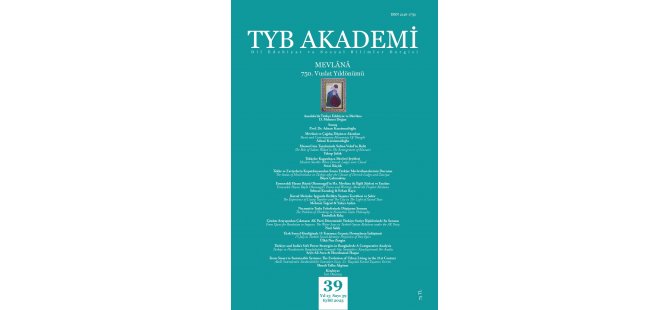

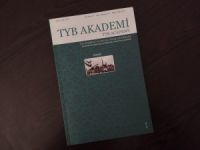

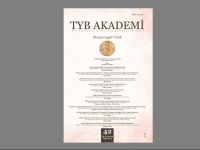






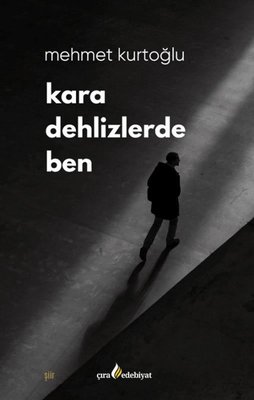
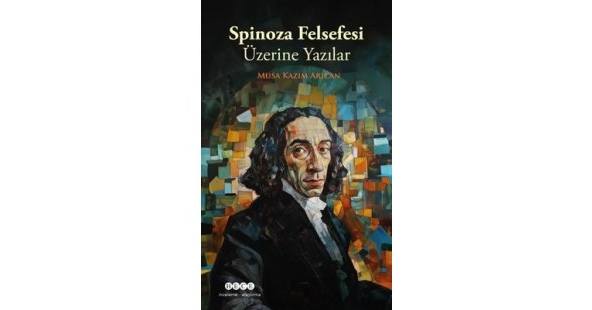
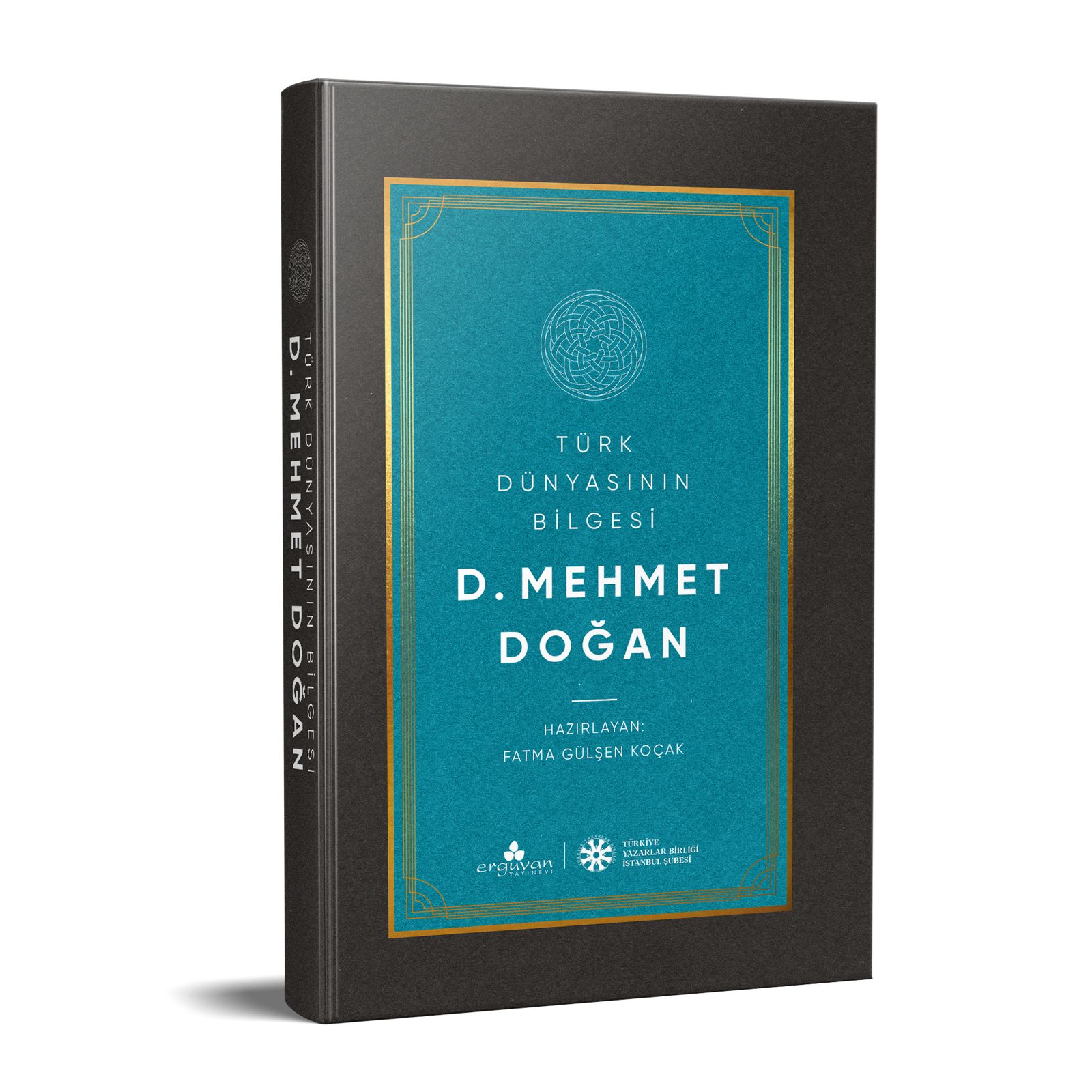
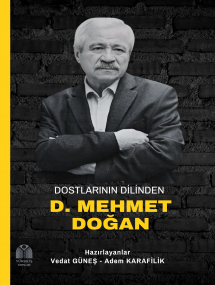
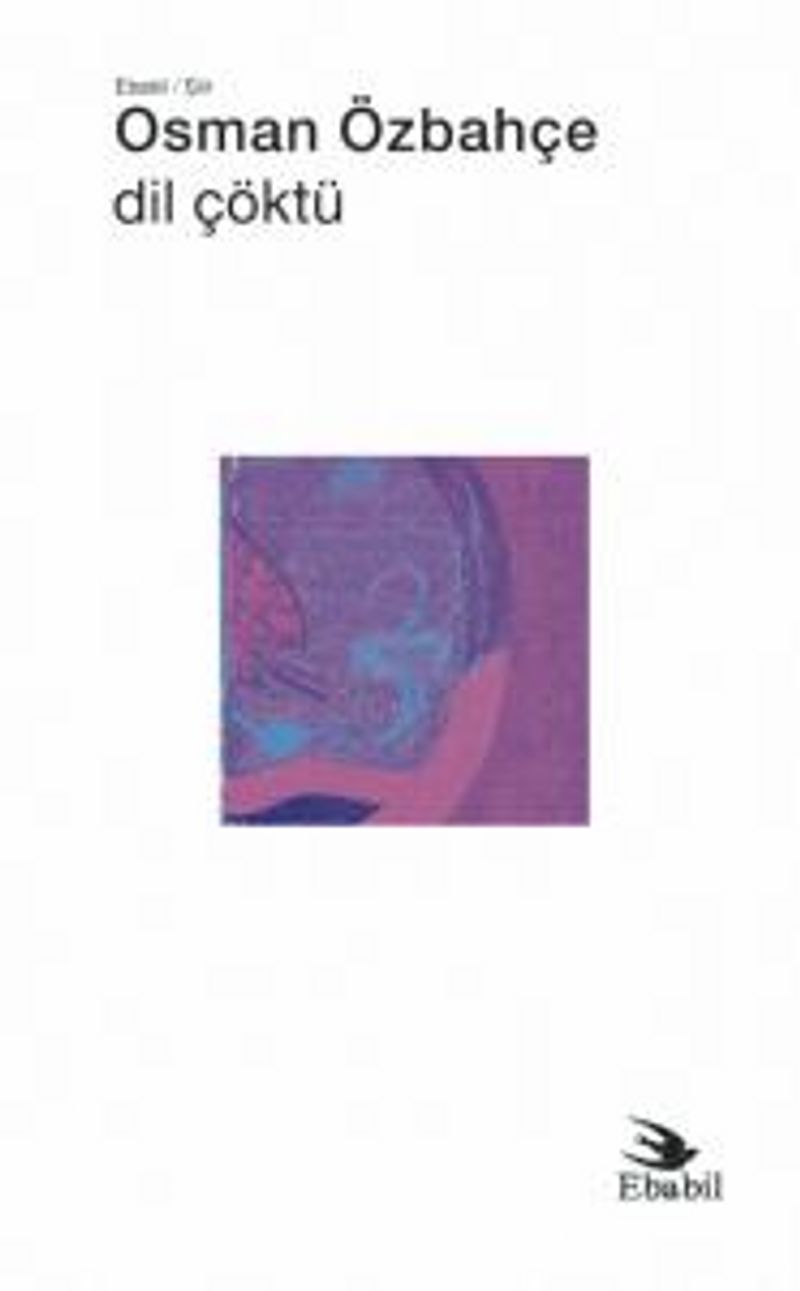
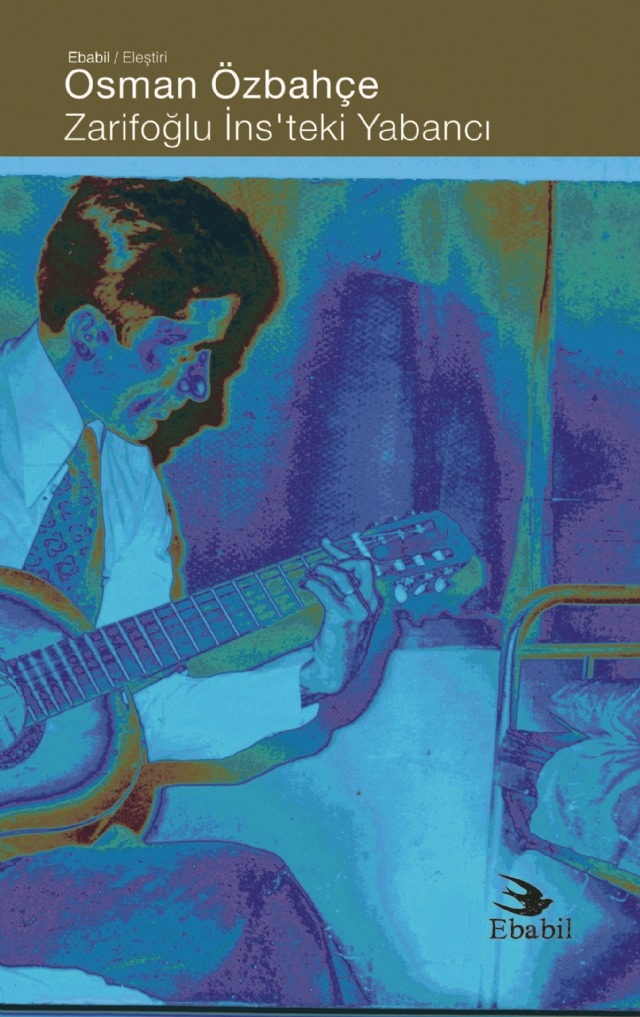
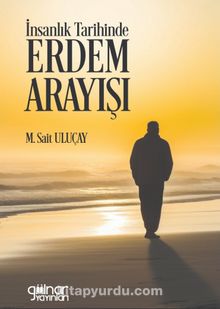
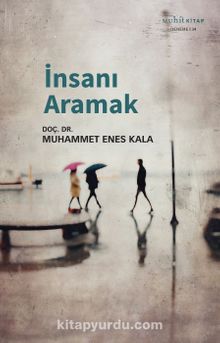
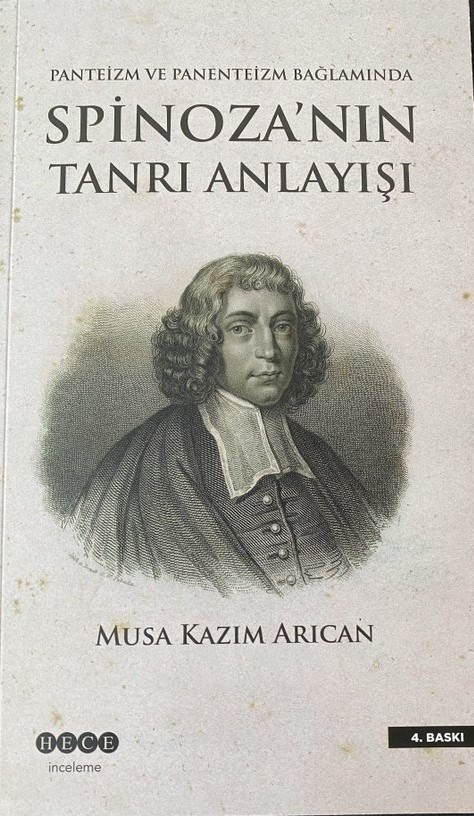

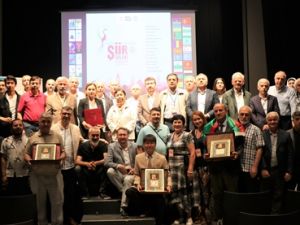
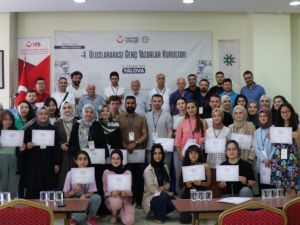





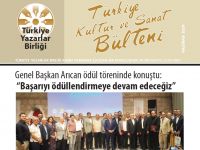

Türkçe karakter kullanılmayan ve büyük harflerle yazılmış yorumlar onaylanmamaktadır.